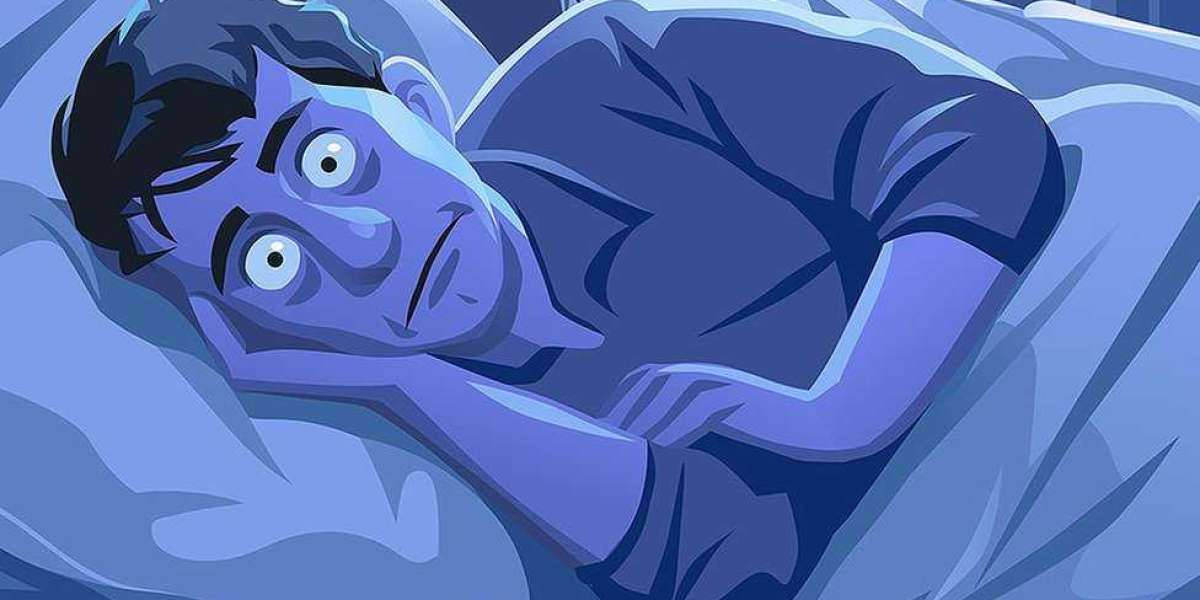Overview
Sleep, an essential aspect of human life, is often taken for granted until its absence becomes glaringly apparent. Insomnia, a common sleep disorder, affects millions of individuals worldwide, disrupting their ability to obtain restful sleep. Living with insomnia's reality is a multifaceted experience, impacting physical health, mental well-being, and overall quality of life. In this article, we delve into the intricate complexities of insomnia, exploring its causes, effects, coping mechanisms, and avenues for support.
Comprehending Sleeplessness
Insomnia is not merely a fleeting inability to fall asleep; it encompasses a spectrum of sleep disturbances, ranging from difficulty initiating sleep to frequent awakenings during the night or early-morning awakenings. While occasional bouts of insomnia are normal, chronic insomnia persists for months or even years, profoundly impacting one's daily functioning.
Causes and Triggers
Various factors contribute to the development of insomnia, including stress, anxiety, depression, medical conditions, lifestyle choices, and environmental factors. Stressful life events, such as job loss, relationship issues, or financial worries, can trigger acute insomnia episodes, while chronic insomnia may stem from underlying medical or psychological conditions.
Modern lifestyles characterized by excessive screen time, irregular sleep schedules, and high levels of caffeine and nicotine consumption can disrupt the body's natural sleep-wake cycle, exacerbating insomnia symptoms. Additionally, certain medications, such as stimulants and antidepressants, may interfere with sleep patterns, further complicating the management of insomnia.
The Impact on Physical and Mental Health
The consequences of insomnia extend far beyond mere sleep deprivation, infiltrating every aspect of an individual's life. Physically, chronic sleep deprivation can weaken the immune system, increase the risk of cardiovascular disease, obesity, diabetes, and other metabolic disorders. Furthermore, persistent fatigue and daytime drowsiness impair cognitive function, concentration, and memory, compromising work performance and safety.
On a psychological level, insomnia often coexists with mood disorders such as anxiety and depression, creating a vicious cycle of sleeplessness and emotional distress. The relentless cycle of lying awake at night, consumed by racing thoughts and worries, can exacerbate existing mental health conditions and contribute to feelings of hopelessness and despair.
The Struggle for Normalcy
Living with insomnia means navigating a constant struggle to achieve a semblance of normalcy amidst relentless fatigue and sleeplessness. Everyday tasks that others take for granted, such as maintaining focus at work, engaging in social activities, or enjoying hobbies, become arduous challenges for individuals with insomnia. The unpredictability of sleep patterns can lead to feelings of isolation and alienation from friends and family who may not understand the gravity of the condition.
Moreover, the societal stigma surrounding insomnia often trivializes the severity of the disorder, dismissing it as a minor inconvenience rather than a debilitating condition. This lack of understanding can exacerbate feelings of frustration and inadequacy in individuals struggling to cope with the realities of insomnia.
Coping Mechanisms and Treatment Options
While insomnia may seem like an insurmountable obstacle, there are numerous coping mechanisms and treatment options available to alleviate its symptoms and improve sleep quality. Lifestyle modifications, such as establishing a consistent sleep schedule, creating a relaxing bedtime routine, and minimizing exposure to stimulating activities before bed, can promote better sleep hygiene.
Cognitive-behavioral therapy for insomnia (CBT-I), a structured therapeutic approach, has been shown to be highly effective in treating chronic insomnia by addressing underlying psychological factors and maladaptive sleep behaviors. Additionally, medications such as hypnotics or sedatives may be prescribed on a short-term basis to facilitate sleep initiation, although their long-term efficacy and potential side effects warrant careful consideration.
Finding Support and Community
Navigating the challenges of insomnia can feel isolating, but finding support from others who share similar experiences can be immensely beneficial. Online forums, support groups, and advocacy organizations provide platforms for individuals with insomnia to connect, share coping strategies, and offer mutual encouragement. By fostering a sense of community and solidarity, these support networks empower individuals to confront insomnia's challenges with resilience and determination.
In summary
Living with insomnia's reality is a complex journey fraught with challenges, but it is not without hope. By understanding the underlying causes, effects, and treatment options for insomnia, individuals can take proactive steps towards reclaiming their sleep and restoring balance to their lives. Through perseverance, self-care, and support from others, it is possible to transcend the confines of insomnia and embrace the restful sleep and vitality that are essential to overall health and well-being.
Insomnia may cast a shadow over the night, but with determination and resilience, one can emerge into the light of a new day, ready to embrace life's possibilities with renewed vigor and vitality.



